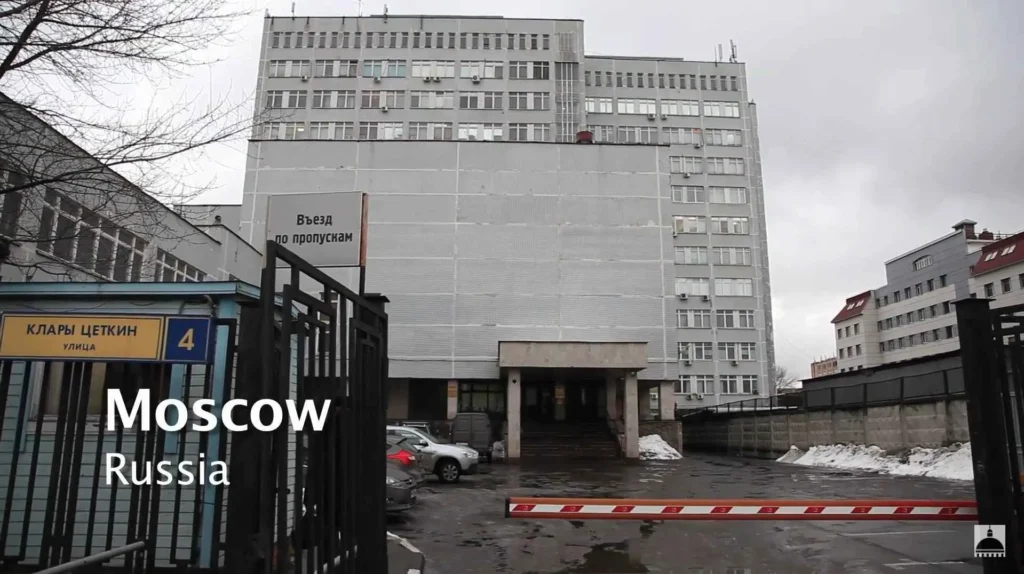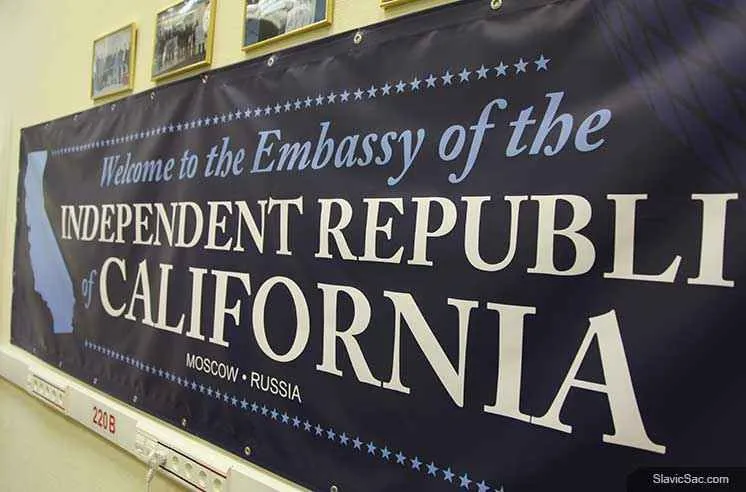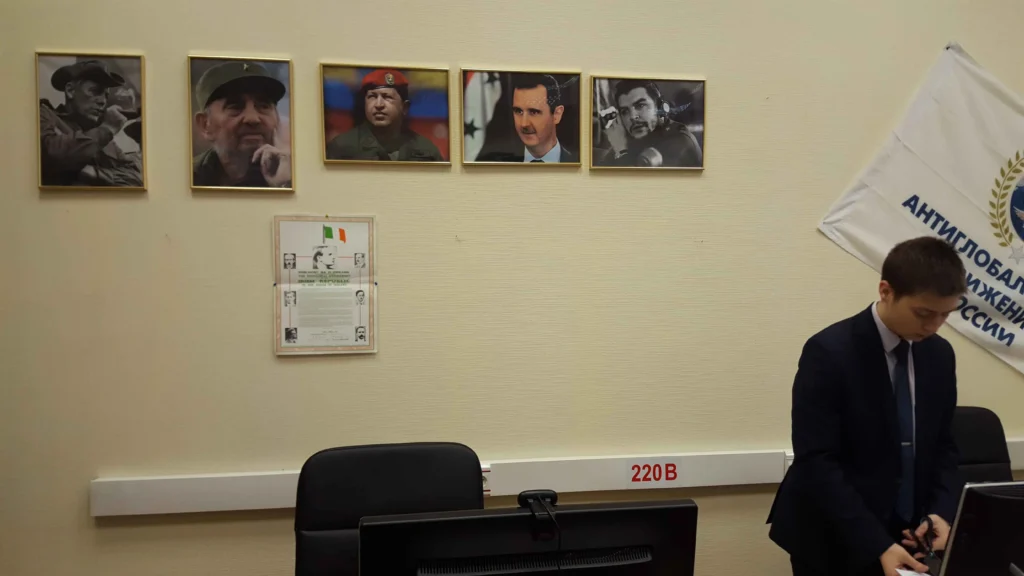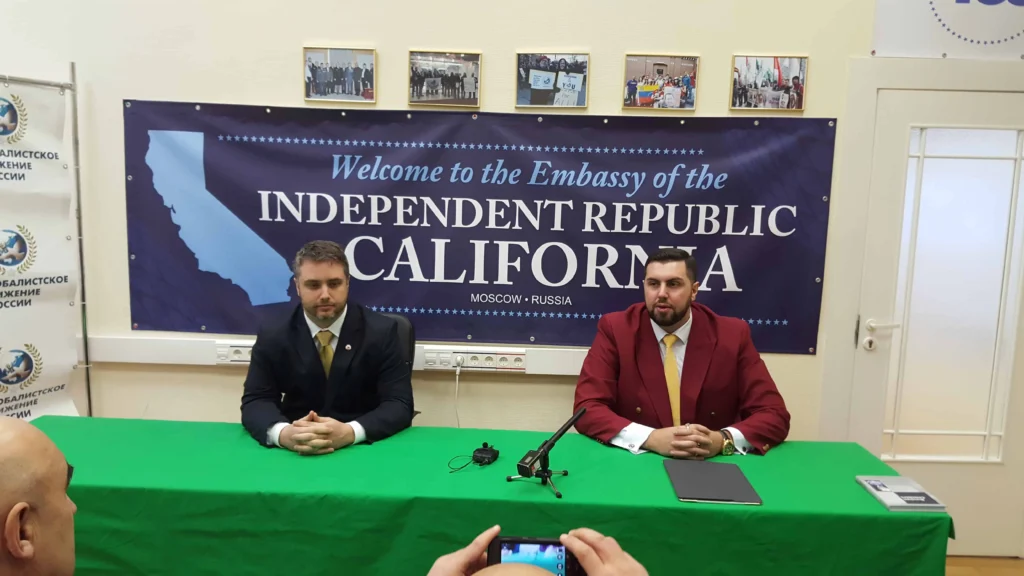On December 18, 2016, on a street named after the German communist revolutionary Clara Zetkin, something unprecedented was inaugurated: the Embassy of California in Russia. Or rather, the embassy of the “Independent Republic of California.”
It wasn’t official. It had no recognized flags or diplomatic staff. But it was there. Inside a brutalist building that, during Soviet times, housed chemical weapons designers. A place filled with history, secrets, and contradictions.
Louis Marinelli was the architect of this improbable idea. An American living in Russia who believed the “Golden State” should separate from the United States. And he saw an opportunity in Moscow. He thought, perhaps, that if an independence referendum ever happened, they would need allies. Votes. Especially in the UN Security Council.
And so, he founded an embassy without a country. A cultural center, he said. A space to tell California’s story, attract tourism, and promote trade relations. But above all, it was a political statement.
The enemy of my enemy is my friend
Support came from a group that seemed to belong to another era: the Anti-Globalization Movement of Russia. A pro-Kremlin organization opposed to the Western-dominated world order. They offered the space for free in their offices, because they believed — or at least claimed to believe — in the self-determination of peoples. Although that logic only seemed to apply when those peoples moved away from the United States.
The ties were clear. At international forums, Marinelli sat alongside Texas separatists, Hawaiian and Puerto Rican independence activists, and representatives of the self-proclaimed republics of Donetsk and Luhansk — the same ones that would later become central to the conflict in Ukraine.
And while Washington debated the possibility of Russian interference in the 2016 elections, a Californian embassy was opening in Moscow. As if everything were connected.
Symbol and contradiction
The interior was a strange collage: images of California counties next to portraits of leaders like Fidel Castro, Hugo Chávez, Bashar al-Assad, Che Guevara… and Vladimir Putin. His photo dominated the room. Watching. Almost as if on guard.
A blue banner welcomed visitors: “Welcome to the Embassy of the Independent Republic of California, Moscow, Russia.”
But it wasn’t an embassy. Marinelli made that clear: to get a visa, you still had to go to the U.S. Embassy. This was something else. A symbol. A political experiment on enemy ground.
Criticism didn’t take long to arrive. The contradiction was obvious. Marinelli wanted to escape American conservatism… and ended up allying with an even more conservative regime. California — the state that championed LGBT rights — now had a symbolic outpost in a country where those rights were persecuted by law. But for Marinelli, that didn’t seem to matter. Perhaps he thought that in politics, the enemy of my enemy is my friend.
A predictable end
In April 2017, as investigations into Russian interference intensified, Yes California suspended its activities. Marinelli resigned. There was talk of moving the office to Yekaterinburg. It never happened. In 2021, he left Russia. By 2022, he was living in Arkansas. By 2024, the movement had dissolved.
The embassy remained like a ghost. An anecdote. A piece of geopolitical theater on one of the tensest stages of the 21st century.
An embassy without a country. A dream of independence that echoed briefly in Moscow… and then fell silent.



